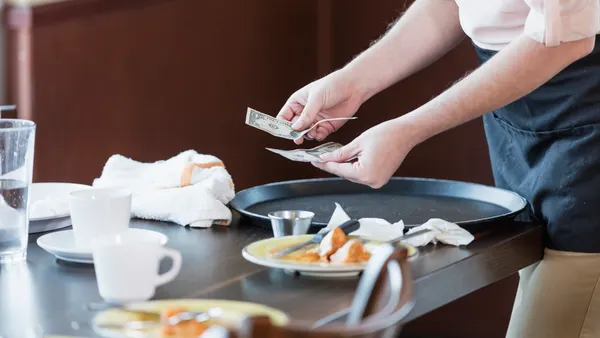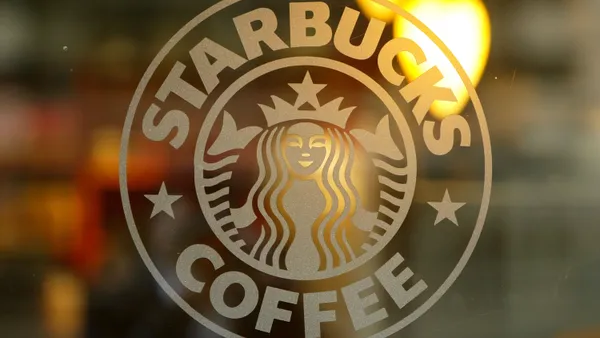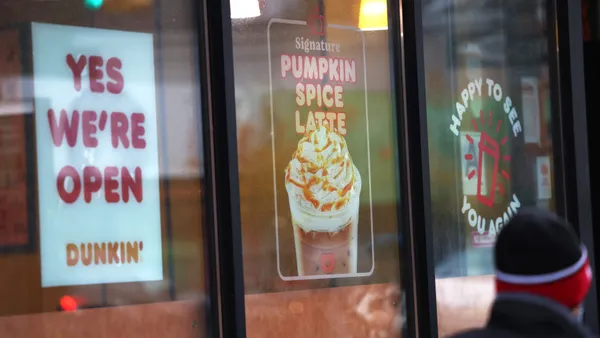Dive Brief:
- Workers at a Chipotle in Lansing, Michigan, voted 11-3 to join the International Brotherhood of Teamsters on Thursday, according to statements from the company and the union.
- The election was the first successful union push at Chipotle, which permanently closed a store in Maine that filed for an election with an independent union earlier this summer.
- The Teamsters’ victory may indicate the wave of cafe unionizing over the past few years is sparking organizing in other restaurants.
Dive Insight:
The current surge of fast food organizing arguably began in 2016 with the Industrial Workers of the World’s campaign to unionize Burgerville, which ended with a contract ratification last December. But most organizing wins have come at coffee shops.
While Starbucks is the most famous example, a number of regional coffee chains and independent cafes have also moved to unionize in the last two years. In recent months, organizing momentum has spilled out of coffee shops and into other restaurants, including Chipotle and Austin pizza chain Via 313.
Workers moved to unionize the Lansing store — one of four Chipotle units in the city — around July 5, according to National Labor Relations Board records. The union filing followed a push to organize a Chipotle in Augusta, Maine, that ended when Chipotle shuttered that store in July. Employees at the Lansing Chipotle said in a press release that they felt a union would give them a greater say over working conditions.
“Forming a union will allow us to have a true voice on the job and force Chipotle to address our concerns,” Harper McNamara, a pro-union Chipotle employee, said in a statement. The Teamsters are one of the largest unions in the country, with 1.2 million active members, meaning the union has considerable resources to support new organizing drives.
In a statement emailed to Restaurant Dive, Laurie Schalow, Chipotle’s chief corporate affairs officer, expressed disappointment with the election result and highlighted the benefits the company offers to employees.
“We’re disappointed that the employees at our Lansing, MI restaurant chose to have a third party speak on their behalf because we continue to believe that working directly together is best for our employees,” Schalow said. “Last year, Chipotle provided jobs to nearly 100,000 people across North America, Canada and Europe and paid out approximately $37 million in bonuses to restaurant employees.”
Ongoing campaigns in restaurants are split between institutional unions, like Workers United and the Teamsters, and new, independent unions, like Chipotle United in Maine or Restaurant Workers United in Austin. Union density in U.S. foodservice is at 1.2% as of 2021, so there is considerable room for organizing growth. These new campaigns, targeting NLRB elections, differ from the Service Employees International Union’s long-running Fight For 15 drive or its corporate campaign against Chipotle in New York City — both of which sought to pressure employers into voluntary recognition or changing working conditions without a union election.














